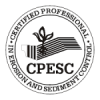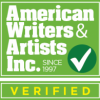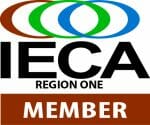Marketing Tips for Promoting Your Waste Solutions
Businesses like yours provide essential services to the organics recycling industry. Whether it’s advice and consulting, machinery and equipment, collection and logistics, or processing and products.
In fact, as more local and state governments are legislating policies and regulations to tackle urgent waste challenges, your business is central to making the emerging circular economy a success.
And your marketing efforts can either help or hinder your business growth and customer relationships.
So how well does your business communicate its mission and sell its products and services?
A professional copywriter can help you define a smart approach, and tease out and clarify your most important differentiators. Below I’ve outlined eight strategies to help you plan and write messages that motivate your audience.

Marketing Collateral That Helps You Promote and Sell
The written marketing material you might use usually looks something like this:
- Product, installation, and application specifications
- Case studies and white papers to explain technologies and solutions
- Business service descriptions, offerings and capability statements
- Press releases for new products, upcoming events and announcements
- Fact sheets, articles, newsletters, public education and promotional materials
- Entire websites
Clear and technically accurate writing is essential. But to have influence, your messages need to resonate with your customer base.
8 Strategies for an Effective Approach
1) Define Your Target Audience
Are your customers generating, processing, or using organic waste? Let’s have a closer look at some examples of the different parts of the organic waste loop.
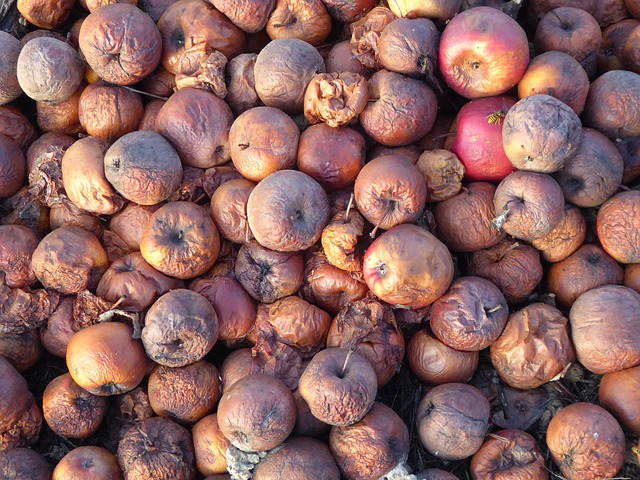
Producers of organic wastes:
- Commercial businesses
- Industrial waste generators
- Landscape contractors
- Food chains and restaurants
- Households (single and multi-family dwellings)
- Agriculture and forestry
- Government maintenance departments
Processors and logistical companies:
- Composting facilities
- Waste processing industries
- Equipment and machinery manufacturers and suppliers
- Logistics companies focused on collection, sorting and distribution
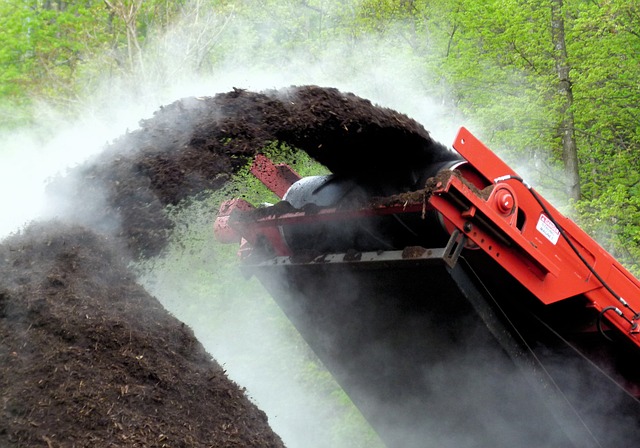
End users of compost and organic products:
- Commercial landscapers
- Mines for rehabilitation
- Agriculture
- Households for gardening
- Erosion and sediment control companies
- Government maintenance departments
- Land management organizations
Can you answer the questions: Who in your customer base is the person with purchasing power? Who are the influencers in the buying process? Who needs to hear my messages because they are an integral part of the sales or customer satisfaction process?
When your marketing audience is clear, down to the person (industry, company type, position title, etc.), it gets easier to dive into the details of the messages you want to send.

2) Example Messages for Your Audience
Once you’ve defined the target audience you serve (e.g. producer, processor or end user), you can begin to develop your messages. Here are a few examples:
Products
You develop top quality composted products. You work hard to process raw material and produce valuable, niche organic amendments to meet the needs of specific end users. If your customers (the end users) are farmers, they might be looking for the following qualities in your products:
- Tested regularly to achieve best practices and quality standards
- Easy to apply to land
- Builds long-term soil health
- Contains bioavailable nutrients
- Increases production quality and quantity
- Does not harm established plantings or seedlings
- Application of this product is a regenerative agriculture practice
Machinery and Equipment Supply
Perhaps you sell machinery and equipment to an organics processing facility. Tanks, mixers, shredders, feeders, screeners, aerators, turners, digesters, composters, etc. For a processing facility looking at significant capital investment, your messages are likely focused on technical details, but might also include practical considerations like:
- Tested and proven in case studies
- High ROI
- Short processing times
- Space and time efficient
- Low maintenance and easy to handle
- Compatible with other systems and software
- Solves problems competitors have not addressed
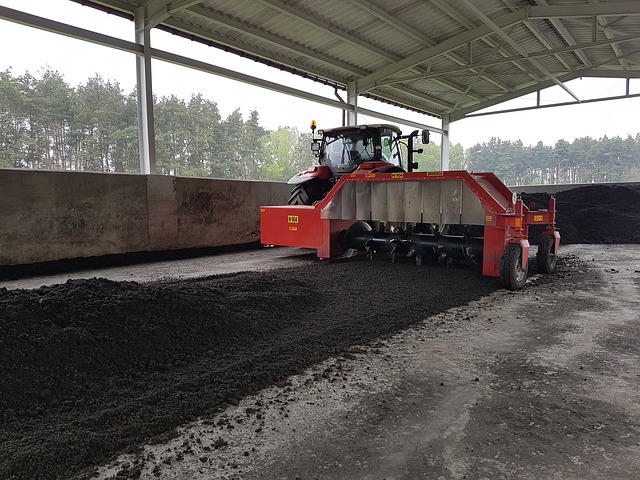
Logistics
If you’re a logistics company collecting and distributing raw and finished products, you want to make it easy for waste producers to recycle and easy for you to pick up. Your messages might include:
- Easy and fast set up – we supply everything you need to get started right away
- Ongoing equipment maintenance and cleaning for smooth operations and no downtime
- Ensures compliance with relevant environmental regulations
- Clean, safe and quick servicing
- We also handle all your monitoring requirements
Companies with advice and consulting services might deliver turnkey solutions and develop custom systems based on individual requirements. They might offer a comprehensive set of testing, product recommendations, set-up and even operations of proven and cutting edge technologies.
So what are your unique services and selling points? What sets you apart from the rest?
3) Summarize and Document Your Marketing Points
Once you’ve considered your audience and unique selling points, put them into a summary document for reference. You can use it to develop all your marketing materials.
The summary includes all relevant marketing and selling statements about your products or services, and helps you to maintain focus and consistency in any future writing and messaging.
So, what kinds of things can you include? Tagline ideas, target audience, value and selling statements, research summaries and positioning are a few ideas.
Here is part of a “key message platform” I produced for a start-up business delivering recycled compost to farmers in NSW, Australia.
It’s best to develop this before you write your marketing materials like a website or brochure. In fact, it will make things a lot easier and provide inputs to all your content, website, branding, advertising, promotions etc.
4) Use a Suite of Written Collateral
Website – Indispensable to showcase your expertise and clarify your unique selling points. A central hub to direct people to find out more and sign up for your offerings. Here is one I put together for a start-up in the compost for agriculture space.
Brochures and Product Information Sheets – While these seem outdated, if you are out meeting people in person at trade shows and other events, print comes in handy. People pick them up for information to read later, show colleagues, and to remind themselves they had a conversation with you. It’s actually used as a metric for trade event attendees. Here is an example of a brochure I put together.
Case Studies – A case study tells a story, complete with challenges, discoveries and transformational benefits. They are a powerful technique to hammer home how a product or service is successful at overcoming problems in the real world.
White Papers – White papers are well-researched, detailed and informative writing. They can provide valuable insight to potential buyers weighing up their options. Good white papers can persuade and circulate between colleagues and offices unlike any other written collateral. Especially one written without hype.
Press Releases – Let everyone know about your new product or venture. Publicize your good work by posting them on your website, social media, email lists and public media outlets.

Banners – These are succinct and made to catch the eye at trade shows. Pull prospective clients and customers into your booth to have a conversation. Click here for my banner samples.
Articles and Advertorials – To garner interest and supplement your ads, trade articles or advertorials in niche magazines can show thought leadership, gain interest in your brand and make special offers. Here is an advertorial targeting farmers to become demonstration sites for using compost. It worked well next to the advertisement on the adjacent print page.
Newsletters – If you have a decent email list a regular newsletter will keep you top of mind. Make them short, useful and informative. Be consistent and send them our regularly.
5) Develop Writing that Engages
First, always write about the biggest issues your clients or customers face. Your audience needs to know you understand their problems.
Then offer them valuable insights. Position yourself as a knowledgable guide that can lead them towards a solution to their problems.
If you can clearly describe what you are promising, and show how their lives will change for the better by working with you or using your products, you can build trust and hope.
Make sure you address any concerns or objections they have. For example, farmers using commercially composted products in agriculture have several concerns. Is the compost contaminated with glass and plastic? Will the nutrient content compare with other fertilizers? Is it likely to harm seedlings and new plantings?
If you address these concerns head-on, you’re more likely to alleviate their fears and reduce their perceived risks.
6) Use Recognized Terms in Your Copy
Selling compost to farmers that are unfamiliar with the term “compost” won’t work. While working on the compost-for-farming messaging, I found that “regenerative agriculture” worked well with farmers. In fact, it was top of mind for farmers more likely to try using compost. While many techniques fall into the category of “regenerative”, using compost is definitely one.

So rather than rely on “compost”, I used language with deeper and more meaningful connections in their minds. Words like “soil health”, “topsoil”, “soil organic matter” and “regenerative”.
Of course, I didn’t exclude the term “compost” but tried to sprinkle it in as part of an educational component to equate using compost with better soil health.
7) Do the Research
I didn’t pull the discovery about the term “compost” out of a hat. Recent research directly applicable to the target audience clearly showed the term was an issue.
A different audience or customer might know all the technical nuances of what makes compost good or bad. Nutrient content, maturity, processing, contamination, source materials…all these ideas are fundamental in understanding compost quality.
Look for social, statistical and technical studies relevant to your offerings and your audience. Or produce your own. And pay careful attention to phrasing and terminology.
Regional surveys, trials, case studies and even local newspapers contain a lot of information you can use. Reviews, letters to the editor and opinion pieces can be gold. Sometimes the language is so clear that your marketing material can practically write itself.
So what are the concepts and terms used by your specific audience?
8) Close with a Powerful Call to Action
In all marketing collateral, digital or print, a clear call-to-action is essential. Ask directly for your potential customer to take action. Call? Email? Go to your website? Don’t beat around the bush.

Each piece of collateral is meant to lead your audience to an obvious next step. It can direct them to download a white paper, ask them to read a relevant case study or ask them to find out more about an event you will be presenting at.
And don’t forget to make a true promise about what they will get, experience or find if they do what you ask:
- Download this white paper – to find out how much you can save in disposal costs by recycling organics
- Read this case study – and learn how Bob’s Farm managed to increase production by 50% over the next harvest
- Sign up to attend Organics Expo – and discover how the latest recycling technology is transforming the industry
Work with a Freelance Copywriter who Understands Your Business
Are you frustrated with writing your own material, or feeling overwhelmed with the amount of marketing collateral you need?
If you want a copywriter that:
- Feels like apart of your team
- Understands your business processes
- Gets the technical side of things
- Can tease out the key concerns and issues facing your customers and clients
- Will discover and speak with your voice and values
- Works well with graphic designers (both print and web) and website developers
I’m a certified copywriter with 20 years’ experience in environmental science and planning.
Erik Larson

